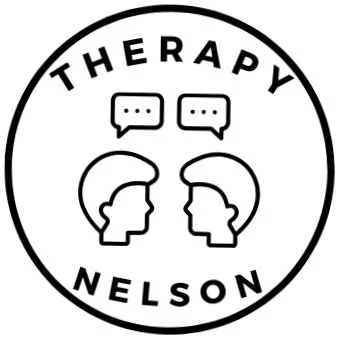The Kindness Within: Can Self-Compassion Make You Happier?
In a world that celebrates relentless ambition, perfectionism, and constant self-improvement, treating yourself with kindness can feel like a radical act. But what if the path to happiness doesn’t lie in achieving more or being better—but in how gently you speak to yourself when life falls apart?
This is where self-compassion comes in. Defined as the ability to treat yourself with the same warmth and care you would offer a struggling friend, self-compassion is increasingly being recognized not just as an emotional support tool, but as a critical ingredient for lasting happiness.
According to author Christopher Germer, “Self-compassion is simply giving the same kindness to ourselves that we would give to others.” It's about allowing yourself to be human—flawed, sometimes failing, but still worthy of care. And the science backs this up: self-compassion improves emotional resilience, reduces stress, and yes—makes you happier.
Let’s explore what self-compassion really means, its key elements, and how it can transform your emotional health.
What Is Self-Compassion—and Why Does It Matter?
Self-compassion is not self-pity, self-indulgence, or weakness. It's an inner attitude that says, “I deserve understanding, even when I’m struggling.”
In times of failure, loss, or emotional hardship, we often default to harsh self-criticism: “I should have known better,” “This is my fault,” or “Why can’t I be stronger?” These inner dialogues intensify pain and perpetuate suffering.
Self-compassion, on the other hand, interrupts that cycle. It softens our internal language, lowers emotional resistance, and encourages healing. Instead of fuelling self-judgment, it offers space to breathe and recalibrate.
At its core, self-compassion is built on the understanding that struggle is a universal experience. Life is hard for everyone at some point, and we are not alone in our pain. This gentle truth provides comfort, connection, and—ultimately—happiness.
The Three Pillars of Self-Compassion
Psychologist Kristin Neff, a leading expert in the field, defines self-compassion through three key components:
· Self-Kindness
Rather than attacking yourself for your shortcomings, self-kindness involves offering support, patience, and understanding. It’s the inner voice that says, “It’s okay to feel this way” or “You did the best you could.”
Self-kindness is especially important during life’s low points—when you don’t get the job, experience heartbreak, or fail to meet your own expectations. Instead of compounding suffering with criticism, you create space for self-healing.
· Common Humanity
Self-compassion reminds you that you are not alone in your struggles. Everyone experiences disappointment, rejection, and failure. This sense of shared human experience helps dissolve the shame and isolation that often accompany suffering.
When you internalize the idea that pain is part of life—not a personal flaw—you feel less alone and more connected to others.
· Mindfulness
Mindfulness in the context of self-compassion is the ability to observe your feelings without exaggerating or suppressing them. It’s about acknowledging emotions with clarity and balance, rather than letting them control your behaviour.
Mindfulness gives you the power to respond to stressors thoughtfully instead of reacting impulsively. This inner awareness is what makes self-kindness and common humanity possible in real time.
How Self-Compassion Boosts Happiness
Happiness isn’t just about external achievements—it’s about emotional alignment. And self-compassion realigns your inner world in profound ways.
· Lowers Stress and Anxiety
When you treat yourself with kindness, you reduce the cortisol levels in your brain—the very hormones that trigger stress and anxiety. Self-compassion regulates your nervous system, shifting it from "fight or flight" into "rest and digest."
· Enhances Mood
Treating yourself kindly creates internal warmth and releases feel-good neurotransmitters like oxytocin and serotonin. This uplifts your mood and builds emotional resilience, even in the face of adversity.
· Encourages Self-Acceptance
People high in self-compassion are more likely to accept their imperfections without shame. This reduces the tendency to compare yourself to others or feel like you’re "not enough"—key barriers to happiness.
Practical Ways to Practice Self-Compassion Daily
You don’t need to overhaul your life to begin experiencing the benefits of self-compassion. Small, intentional actions can have big emotional payoffs.
· Talk to Yourself Like a Friend
Next time you're struggling, imagine how you’d comfort a friend in your situation. Then turn those same words inward. Say things like, “This is hard, but I’m doing my best” or “Anyone would feel overwhelmed in my shoes.”
· Be an Observer of Your Emotions
Instead of being swept away by shame, guilt, or anger, pause and examine your emotions from a neutral standpoint. Ask: What am I feeling? Why am I feeling it? This simple act of observation reduces emotional reactivity and brings clarity.
· Practice Self-Care Without Guilt
Self-care isn't selfish—it’s a vital act of compassion. Make time for rest, nourishing food, hobbies, and healthy boundaries. Each act of self-care reinforces the belief that you are worthy of attention and care.
· Use Daily Affirmations
Repeat simple, supportive phrases to yourself like:
v “I am enough as I am.”
v “I am not alone in this.”
v “This feeling is temporary.”
These affirmations may feel awkward at first but are powerful tools in rewiring your internal dialogue.
The Ripple Effects of Self-Compassion
The benefits of self-compassion extend far beyond personal happiness. They impact how you show up in the world and relate to others.
· Stronger Relationships
When you treat yourself with compassion, you're less dependent on others for validation. This makes your relationships more balanced, secure, and authentic.
· Greater Resilience
Self-compassionate people bounce back more quickly from setbacks. They view failure as a part of growth, not a personal flaw. This makes them more open to challenges, change, and personal development.
· Reduced Risk of Burnout
In professional settings, self-compassion can prevent burnout by encouraging healthy boundaries and realistic expectations. You’re less likely to overextend yourself or spiral into perfectionism.
Common Misconceptions About Self-Compassion
Despite its benefits, self-compassion is often misunderstood. Let’s debunk some common myths.
“It Makes You Weak”
In reality, self-compassion requires courage. It means facing your pain head-on rather than numbing it or pushing it aside. It cultivates emotional strength—not weakness.
“It Leads to Laziness”
Some fear that being kind to themselves will lead to complacency. Research shows the opposite: self-compassion increases motivation. When you feel safe and supported, you’re more likely to take healthy risks and grow.
“It’s Selfish”
Self-compassion improves your well-being, which enables you to care for others more effectively. It fills your cup so you can pour into others without depletion.
Becoming Happier Through Self-Compassion: A Real-Life Perspective
Consider this scenario:
You fail an important exam, and your internal voice says, “I’m such a failure. I’ll never be good enough.” This activates shame, which often leads to avoidance, sadness, and even self-sabotage.
Now, imagine applying self-compassion: “This was disappointing, and it’s okay to feel upset. But this doesn’t define my worth. I can learn and try again.”
The difference isn’t just in words—it’s in outcomes. The second response builds resilience, encourages effort, and nurtures hope. And hope, as we know, is the foundation of happiness.
By learning to meet your pain with kindness, you don’t just reduce suffering—you build a life rooted in acceptance, peace, and joy.
Final Thoughts: Self-Compassion Is the Gateway to Sustainable Happiness
True happiness isn’t about perfection or constant positivity. It’s about embracing your humanity with gentleness and care. Self-compassion allows you to navigate life’s difficulties with grace rather than grit alone. It creates a safe emotional environment where healing, growth, and happiness can flourish.
In a world that constantly tells you to be more, do more, and achieve more, choosing self-compassion is a revolutionary act. It’s a quiet rebellion against inner criticism—and an open invitation to joy.
So the next time you stumble or struggle, pause. Take a breath. Place your hand over your heart. And remember: You deserve kindness too.

